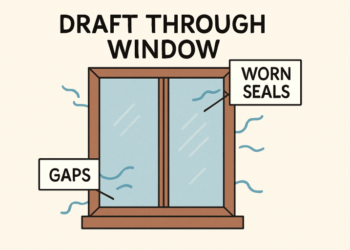Running a cleaning service comes with its own set of risks, from accidents on the job to potential damages to clients’ properties. Without proper insurance coverage, your business could be left vulnerable to financial losses. Being bonded and insured not only protects your business but also enhances your credibility and trustworthiness with potential clients.

Having the right insurance in place can mean the difference between a minor issue and a major financial setback. It covers unforeseen events, ensuring your business can continue to operate smoothly. In this article, we’ll explore the importance of cleaning business insurance and guide you through the process of getting bonded and insured.
Key Takeaways
- Understand the risks associated with running a cleaning service without insurance.
- Learn about the different types of insurance available for cleaning services.
- Discover how being bonded and insured can enhance your business credibility.
- Find out the steps to take to get the right insurance coverage for your business.
- Explore the benefits of having proper insurance for your cleaning service.
Understanding the Importance of Bonds and Insurance for Cleaning Services
As a cleaning service provider, it’s essential to understand the importance of bonds and insurance in protecting your business. The cleaning industry, like many others, faces various risks that can impact operations and financial stability.
Why Protection Matters in the Cleaning Industry
Protection matters because it safeguards your business against unforeseen events such as accidents, theft, or property damage. Having the right bonds and insurance can help mitigate these risks, ensuring your business remains operational.
The Difference Between Bonding and Insurance
Bonding and insurance are often confused, but they serve different purposes. Bonding protects clients from employee theft or misconduct, while insurance covers various business risks, including liability and property damage.
Potential Risks Faced by Cleaning Businesses
Cleaning businesses face several risks, including:
- Accidents on the job
- Theft by employees
- Property damage
- Liability for injuries or damages
| Risk Type | Description | Protection Method |
| Accidents | Injuries to employees or clients | Liability Insurance |
| Theft | Employee misconduct or theft | Fidelity Bond |
| Property Damage | Damage to client’s property | Property Insurance |
Understanding these risks and having the appropriate bonds and insurance is crucial for the longevity and success of your cleaning business.
Types of Insurance Essential for Cleaning Businesses
The cleaning industry is fraught with potential hazards, necessitating comprehensive insurance solutions. Cleaning businesses face various risks, from accidents on the job to damage to client property. Having the right insurance coverage can protect your business from financial losses and reputational damage.
General Liability Insurance
General Liability Insurance is crucial for cleaning businesses as it covers damages to client property and third-party injuries. This type of insurance can help pay for medical expenses or property repairs, ensuring your business remains financially stable.
Workers’ Compensation Insurance
Workers’ Compensation Insurance is essential for businesses with employees, as it provides coverage for work-related injuries or illnesses. This insurance helps pay for medical treatment and lost wages, reducing the financial burden on your business.
Commercial Auto Insurance
For cleaning businesses that use vehicles for operations, Commercial Auto Insurance is vital. It covers damages to company vehicles and provides liability coverage in case of accidents involving company vehicles.
Property Insurance
Property Insurance protects your business’s physical assets, such as equipment and supplies, from damage or loss due to theft, fire, or other disasters. This insurance can help your business recover quickly from unforeseen events.
Professional Liability/Errors and Omissions
Professional Liability Insurance, also known as Errors and Omissions Insurance, covers your business against claims of negligence or failure to perform services as promised. This insurance is particularly important for cleaning businesses that provide specialized services.
| Insurance Type | Coverage | Importance |
| General Liability | Damages to client property and third-party injuries | High |
| Workers’ Compensation | Work-related injuries or illnesses | High |
| Commercial Auto | Damages to company vehicles and liability coverage | Medium |
| Property | Physical assets from damage or loss | Medium |
| Professional Liability | Claims of negligence or failure to perform services | High |
By understanding and investing in these essential insurance types, cleaning businesses can mitigate risks and ensure long-term success.
Understanding Cleaning Service Bonds
Understanding the different types of cleaning service bonds is vital for any cleaning business owner. These bonds are crucial for protecting both clients and businesses from potential losses and for establishing a trustworthy relationship.
Janitorial Service Bonds
Janitorial service bonds are designed specifically for cleaning businesses. They provide a financial guarantee that the cleaning service will fulfill its contractual obligations. This type of bond is essential for building trust with clients, especially for large commercial cleaning contracts.
Fidelity Bonds for Employee Theft Protection
Fidelity bonds protect businesses from employee theft. For cleaning services, this means protection against loss of money, securities, or other property due to dishonest acts by employees. It’s a vital protection, especially when employees have access to clients’ premises and valuables.
Surety Bonds for Cleaners
Surety bonds for cleaners are a type of bond that guarantees the performance of the cleaning service. If the service fails to meet its contractual obligations, the surety bond provides compensation to the client. This bond is particularly important for ensuring compliance with contractual terms and client satisfaction.
License and Permit Bonds
License and permit bonds are required by law in many jurisdictions for cleaning businesses to operate. These bonds ensure that the business complies with all relevant laws and regulations. They also provide a layer of protection for clients by ensuring that the business operates ethically.
In conclusion, cleaning service bonds are a multifaceted tool for protecting both cleaning businesses and their clients. By understanding and utilizing these bonds, cleaning service providers can enhance their credibility and trustworthiness in the industry.
| Type of Bond | Purpose | Benefit |
| Janitorial Service Bonds | Guarantee contractual fulfillment | Builds client trust |
| Fidelity Bonds | Protect against employee theft | Secures business and client assets |
| Surety Bonds for Cleaners | Guarantee performance | Ensures client satisfaction |
| License and Permit Bonds | Ensure legal compliance | Protects clients and promotes ethical operation |
How to Get Bonded and Insured for a Cleaning Service: Step-by-Step Process
To ensure your cleaning business is fully protected, follow this step-by-step guide to getting bonded and insured. The process involves several key steps that will help safeguard your business against potential risks.
Assessing Your Specific Business Needs
The first step in obtaining insurance for your cleaning business is to assess your specific needs. Consider the size of your operation, the number of employees, and the types of services you offer. This assessment will help you determine the appropriate levels of coverage required for your business.
- Evaluate your business operations and identify potential risks.
- Consider the value of your equipment and property.
- Determine if you need coverage for employee injuries or property damage.
Finding Reputable Insurance Providers and Bonding Companies
Once you have assessed your needs, the next step is to find reputable insurance providers and bonding companies. Look for companies that specialize in cleaning service liability coverage and have a good reputation in the industry.
- Research potential providers and their offerings.
- Compare quotes from multiple insurance companies.
- Check the financial stability and customer service reputation of the providers.
Required Documentation for Applications
When applying for insurance and bonds, you will need to provide certain documentation. This typically includes business registration documents, financial statements, and details about your business operations.
- Business license and registration documents.
- Financial statements, including balance sheets and income statements.
- Information about your business operations, including services offered and employee details.
The Underwriting Process
The underwriting process involves the insurance company assessing the risk of insuring your business. This process can vary depending on the type of insurance and the provider. As a pro cleaning service, you may be able to negotiate better rates based on your business’s risk profile.
During underwriting, the insurer will review your application, assess your business risk, and determine your premium rates. It’s essential to provide accurate and comprehensive information to ensure a smooth underwriting process.
Determining the Right Coverage Amounts
Understanding the factors that influence coverage amounts is vital for cleaning businesses to ensure they are adequately protected without overpaying for insurance.
Factors Affecting Coverage Needs
Several factors can affect the coverage needs of a cleaning business, including the size of the operation, the number of employees, and the type of services offered. For instance, a commercial cleaning bond might be necessary for businesses that work with high-value clients or handle sensitive materials.
Industry Standards for Cleaning Businesses
Industry standards can provide a benchmark for determining appropriate coverage levels. For example, many clients may require a certain level of insurance for maid service before hiring a cleaning company. Understanding these standards can help businesses navigate the complex insurance landscape.
Balancing Cost vs. Protection
Finding the right balance between the cost of insurance premiums and the level of protection is crucial. While it’s essential to have adequate cleaning business insurance, businesses should also be mindful of their budget constraints to avoid overextending financially.
Cost Considerations for Insurance and Bonding
Understanding the costs associated with insurance and bonding is crucial for cleaning service businesses. The expenses related to these protective measures can significantly impact a company’s financial health and operational budget.
Average Costs for Different Types of Coverage
The costs of insurance and bonding for cleaning services vary based on the type of coverage. Here is a general overview of what businesses might expect to pay:
| Type of Insurance | Average Annual Cost |
| General Liability Insurance | $500-$2,000 |
| Workers’ Compensation Insurance | $1,000-$5,000 |
| Commercial Auto Insurance | $1,500-$6,000 |
| Property Insurance | $500-$3,000 |
Factors That Influence Premium Rates
Several factors can influence the premium rates for insurance and bonding, including the size of the business, the number of employees, the type of services offered, and the business’s claims history. Businesses with a good safety record and few claims can often secure lower rates.
Ways to Reduce Insurance Costs
To reduce insurance costs, cleaning service businesses can implement various strategies, such as improving workplace safety, training employees, and bundling insurance policies with a single provider. Regularly reviewing and updating insurance coverage can also help ensure that businesses are not over-insured.
Budgeting for Insurance as a Business Expense
Businesses should factor insurance and bonding costs into their operational budget. By doing so, they can better manage their finances and ensure they have adequate protection.

By understanding the costs associated with insurance and bonding, cleaning service businesses can make informed decisions about their financial and operational management.
Legal Requirements and Compliance
Cleaning businesses must navigate a complex landscape of legal requirements and compliance issues. Ensuring adherence to these regulations is vital for avoiding legal repercussions and maintaining a reputable business.
State-Specific Insurance Requirements
Different states have varying insurance requirements for cleaning businesses. For instance, some states mandate workers’ compensation insurance for businesses with employees, while others may require liability insurance. It’s crucial for cleaning service providers to familiarize themselves with the specific insurance requirements in their state to avoid fines and penalties.
Client Contract Requirements
Client contracts are another area where legal compliance is essential. These contracts should clearly outline the terms of service, including liability and responsibility. Ensuring that contracts are comprehensive and legally binding can protect cleaning businesses from potential disputes.
Maintaining Proper Documentation
Maintaining accurate and comprehensive documentation is critical for compliance. This includes insurance policies, contracts, and employee records. Proper documentation can help cleaning businesses demonstrate compliance in case of an audit or legal issue.
Consequences of Operating Without Proper Coverage
Operating without the necessary insurance and bonds can have severe consequences, including fines, legal action, and damage to the business’s reputation. In the event of an accident or dispute, lacking proper coverage can lead to significant financial losses.
Insurance for Specialized Cleaning Services
Insurance for specialized cleaning services is crucial for protecting against specific risks associated with different types of cleaning operations. The diverse nature of cleaning services, from residential to industrial, necessitates a tailored approach to insurance coverage.
Residential Cleaning Services
Residential cleaning services face unique risks, such as potential damage to personal property and the need for worker safety in private homes. Liability insurance is essential to protect against claims of property damage or personal injury.
Commercial Cleaning Operations
Commercial cleaning operations require insurance that covers the risks associated with cleaning large commercial spaces. This includes general liability insurance and potentially workers’ compensation insurance if they have employees.
Industrial Cleaning Companies
Industrial cleaning companies often work in hazardous environments and require specialized insurance coverage that includes protection against industrial accidents and potential environmental damage.
Specialized Services (Carpet Cleaning, Window Washing, etc.)
Specialized services like carpet cleaning and window washing have their own set of risks, such as equipment damage and potential for accidents on the job. Equipment insurance and liability insurance are crucial for these businesses.
| Service Type | Primary Insurance Needs | Additional Considerations |
| Residential Cleaning | Liability Insurance | Worker Safety Measures |
| Commercial Cleaning | General Liability, Workers’ Compensation | Coverage for Large Spaces |
| Industrial Cleaning | Specialized Liability, Environmental Damage | Hazardous Environment Coverage |
| Specialized Services | Equipment Insurance, Liability Insurance | Accident and Damage Coverage |

By understanding the specific insurance needs of different cleaning services, businesses can better protect themselves against potential risks and financial losses.
Risk Management Strategies for Cleaning Services
Effective risk management is crucial for cleaning services to mitigate potential hazards and ensure a safe working environment. By implementing comprehensive risk management strategies, cleaning businesses can reduce the likelihood of accidents, protect their employees and clients, and minimize insurance costs.
Implementing Safety Protocols
Developing and enforcing strict safety protocols is a fundamental aspect of risk management for cleaning services. This includes:
- Conducting thorough risk assessments for each cleaning job
- Providing personal protective equipment (PPE) to employees
- Establishing clear procedures for handling hazardous materials
Employee Training Programs
Comprehensive employee training is essential for maintaining a safe working environment. Cleaning businesses should invest in regular training programs that cover:
- Proper use of cleaning equipment and chemicals
- Safety procedures for various cleaning tasks
- Emergency response protocols
Proper Chemical Handling and Storage
Safe handling and storage of cleaning chemicals is critical to prevent accidents and exposure. This involves:
- Labeling and storing chemicals according to manufacturer instructions
- Training employees on the safe use of chemicals
- Maintaining proper ventilation in areas where chemicals are used
Regular Safety Audits and Inspections
Conducting regular safety audits and inspections helps identify potential risks and ensures compliance with safety protocols. This proactive approach enables cleaning businesses to address issues before they become major problems, reducing the risk of accidents and insurance claims.
Using Insurance and Bonding as Marketing Tools
As a pro cleaning service, leveraging insurance and bonding can significantly enhance your marketing strategy. By having the right coverage, you not only protect your business but also gain a competitive edge in the market.
Building Client Trust Through Protection
Clients want to know that they’re hiring a reliable and responsible cleaning service. By having cleaning service liability coverage, you demonstrate your commitment to protecting their property and interests. This can be a significant trust-builder, especially for clients who are hiring a cleaning service for the first time.
Highlighting Coverage in Marketing Materials
Make sure to highlight your insurance and bonding in your marketing materials. This can include your website, brochures, and sales pitches. By emphasizing your coverage, you can differentiate your business from competitors who may not have the same level of protection.
Addressing Client Concerns About Liability
Clients often have concerns about liability when hiring a cleaning service. By having the right insurance and bonding in place, you can alleviate these concerns and provide peace of mind. This can be a major selling point, especially for high-end or commercial cleaning clients.
Competitive Advantage in the Marketplace
In a competitive market, having bonding for small cleaning businesses can be a significant differentiator. It shows that you’re committed to professionalism and customer protection. By highlighting this in your marketing, you can attract more clients and grow your business.
| Marketing Tool | Description | Benefit |
| Insurance and Bonding | Protection for clients and business | Builds trust and credibility |
| Highlighting Coverage | Emphasizes commitment to client protection | Differentiation from competitors |
| Addressing Liability Concerns | Alleviates client worries about risk | Increased client confidence |
Conclusion: Securing Your Cleaning Business Future
Getting bonded and insured is a crucial step in establishing a reputable and reliable cleaning service. By understanding the importance of bonds and insurance, you can protect your business from potential risks and financial losses.
To get bonded and insured for a cleaning service, you need to assess your specific business needs, find reputable insurance providers and bonding companies, and complete the required documentation. Cleaning service insurance and cleaning business insurance are essential for safeguarding your business against various risks, including liability, property damage, and employee injuries.
By investing in the right insurance coverage and bonds, you can build client trust, enhance your competitive advantage, and ensure the long-term success of your cleaning business. Take the necessary steps to secure your cleaning business future by obtaining the necessary insurance and bonds, and enjoy the peace of mind that comes with knowing you’re protected.
FAQ
What is the difference between bonding and insurance for a cleaning service?
Bonding protects clients from potential losses due to employee theft or dishonesty, while insurance covers damages or injuries caused by the cleaning service, such as accidents or property damage.
What types of insurance are essential for a cleaning business?
Essential insurance types for cleaning businesses include general liability, workers’ compensation, commercial auto, property, and professional liability insurance, which protect against various risks such as accidents, employee injuries, and property damage.
How do I determine the right coverage amounts for my cleaning business?
To determine the right coverage amounts, consider factors such as business size, number of employees, services offered, and industry standards, and balance the need for protection with the cost of premiums.
What is a janitorial service bond, and do I need one?
A janitorial service bond is a type of surety bond that protects clients from potential losses due to employee dishonesty or theft; whether you need one depends on your business operations, client requirements, and local regulations.
How can I reduce my insurance costs as a cleaning business owner?
To reduce insurance costs, implement safety protocols, train employees, maintain a good claims history, and shop around for insurance providers to find the best rates.
Are there specific insurance requirements for specialized cleaning services like carpet cleaning or window washing?
Yes, specialized cleaning services may require additional or specialized insurance coverage due to the unique risks associated with their services, such as equipment damage or chemical exposure.
Can having insurance and bonding help me market my cleaning business?
Yes, having insurance and bonding can be a marketing advantage, as it demonstrates a commitment to protecting clients and their property, and can help build trust with potential customers.
What are the consequences of operating a cleaning business without proper insurance and bonding?
Operating without proper insurance and bonding can result in significant financial losses, damage to reputation, and even business closure in the event of an unforeseen incident or lawsuit.
How often should I review and update my insurance coverage as a cleaning business owner?
It’s recommended to review and update your insurance coverage annually or whenever there are significant changes to your business operations, such as expansion or changes in services offered.
What is risk management, and how can it help my cleaning business?
Risk management involves identifying and mitigating potential risks to your business, such as accidents or property damage; by implementing risk management strategies, you can reduce the likelihood of incidents and lower your insurance costs.











